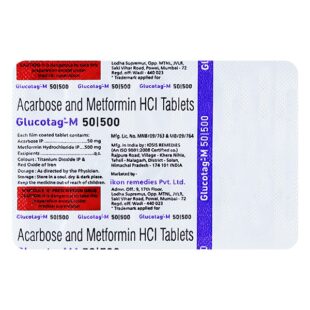- Your cart is empty
- Continue Shopping
Acabrunat 100mg Capsule
₹11,625.00Current price is: ₹11,625.00. Original price was: ₹14,531.25.
Uses of Acabrunat 100mg Capsule
The Acabrunat 100mg Capsule is used in the treatment of
- Chronic lymphocytic leukemia
- Small lymphocytic lymphoma
- Mantle cell lymphoma
Introduction Of Acabrunat 100mg Capsule
Acabrunat 100mg Capsule is an anticancer medicine containing the active constituent Acalabrutinib. It belongs to a class of drugs called Bruton’s tyrosine kinase (BTK) inhibitors. It is used to treat mantle cell lymphoma (MCL), chronic lymphocytic leukemia (CLL), and small lymphocytic lymphoma (SLL). MCL, CLL, and SLL are cancers of the white blood cells called lymphocytes that are part of the immune system. They differ from each other by the location where cancer occurs and the type of lymphocytes affected.
Before taking this medicine, inform your doctor if you have had recent surgery, bleeding problems, heart rhythm problems, infection, are pregnant, or are breastfeeding. It is not recommended for children and adolescents less than 18 years. This medicine can increase the risk of bleeding. Patients taking Acabrunat 100mg Capsule should be monitored for signs of bleeding and should avoid taking other medications that can increase the risk of bleeding, such as blood thinners.
Therapeutic Effects of Acabrunat 100mg Capsule
The therapeutic effect of Acabrunat 100mg Capsule is to inhibit the activity of Bruton’s tyrosine kinase (BTK), a protein that is essential for the survival and growth of cancer cells in certain types of lymphomas and leukemias. By blocking BTK, it can help to slow down or even stop the growth and spread of cancer cells, which can lead to a reduction in tumor size, an improvement in symptoms, and a delay in disease progression.
Interaction of Acabrunat 100mg Capsule with other drugs
Inform your healthcare provider about all your medicines, including prescription, over-the-counter, nutritional or vitamin supplements, and herbal products. Certain medications may interact with Acabrunat 100mg Capsule and reduce effectiveness by causing undesirable side effects.
More Information about Acabrunat 100mg Capsule
- Store in a refrigerator between 20°C to 25°C (68°F to 77°F).
- Keep away from moisture, heat, and light.
- It should not be frozen.
- Keep it in its original packaging until it is ready to be used.
- Keep out of the reach of children and pets.
How to consume Acabrunat 100mg Capsule
Acabrunat 100mg Capsule is typically taken orally, with or without food. The tablets should be swallowed whole, not crushed, chewed, or broken. The recommended dosage can vary depending on the type of cancer being treated and other factors such as your overall health and response to treatment. Do not take a double dose to make up for a missed dose.
Safety Advices for Acabrunat 100mg Capsule
Pregnancy
Consult your doctor
Acabrunat is unsafe during pregnancy. It can harm the developing fetus, so pregnancy should be avoided while taking this medicine.
Breast Feeding
Consult your doctor
It is unknown whether Acabrunat is excreted into human breast milk, so breastfeeding women should consult a doctor before taking it.
Lungs
Consult your doctor
If you have a lung disease or lung cancer and are considering treatment with Acabrunat , it is important to discuss this medication’s potential benefits and risks with your healthcare provider.
Liver
Consult your doctor
Acabrunat can affect the liver, elevating liver enzymes (AST, ALT) in some patients taking it. In rare cases, severe liver injury or failure has been reported.
Alcohol
Unsafe
Patients taking Acabrunat 100mg Capsules avoid or limit their alcohol consumption, as alcohol can exacerbate certain side effects of the medication, such as fatigue and depression.
Driving
Consult your doctor
Patients should always monitor their response to the Acabrunat 100mg Capsule medication and be cautious when driving or operating machinery if they experience any side effects that may impair their ability to do so safely.
Side Effects of Acabrunat 100mg Capsule
Serious:
- Bleeding problems
- Infections
- High blood pressure
- Heart problems
- Kidney failure
Common:
- Headache
- Diarrhea
- Nausea
- Fatigue








Reviews
There are no reviews yet.